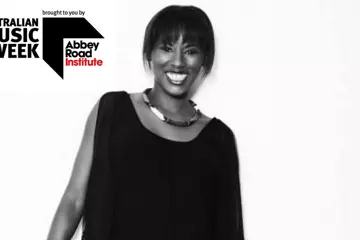 Boy & Bear
Boy & Bear“You hopefully make better decisions along the way, in terms of every record you make,” says vocalist David Hosking, reflecting on the ten years of Boy & Bear that went into making their fourth studio album, Suck On Light. “We understand more than ever what’s required and obviously, this time we had some significant challenges along the way.”
Significant challenges might be an understatement. Hosking’s experiences with a debilitating illness, later diagnosed as a gut bacterial issue, stretch back to their first album, 2011’s Moonfire. His fatigue was sometimes so severe that he was unable to stand. Even now, warm and friendly though he is, Hosking tires and muddles easily; he’s still, by his own admission, not entirely well yet. “It did feel, like, persistent,” Hosking says. “As a collective, the way we were working together, we were onto something really good, and managing to get the best out of each other.
“We all feel, dare I say it, but touch wood, this is a strong piece of work.”
It’s tricky, though, Hosking says, to look from the inside out on one’s craft. Still, he is ultimately proud of the work he and his band did to make this record.
“I think, personally, [being happy with the album] was going to be a tricky hurdle to jump. On the last record I was hoping I would have gotten better but by the time we did the third record, I was in a pretty bad way and sort of checked out – I feel like I could have added value to that process but I was gun-shy, I didn’t want to make a lukewarm record.
“I started to improve and there was a moment of committing to it, where there was enough confidence to go, ‘No, we can do this. I’m going to have it in me to push these songs further [and] get all the lyrics right.’
Don't miss a beat with our FREE daily newsletter
“I definitely look back and feel proud of [this] result. I didn’t want to rock up and record anything, we wanted to make something we’re really proud of and I can definitely say that we are.”
Where did Hosking find the special reserve of energy that would help him to write Suck On Light?
Hosking replies with a heavy sigh: “What’s really interesting, this whole process started to affect my brain literally at the end of second record – I remember having a lot of problems and trying to write, and that being very distracting.
“Hitting my head against a brick wall because every process I’d known wasn’t working, something wasn’t right – the funny thing is by the time we got to this record, because I was aware, because I understood it, there wasn’t a part of my brain in doubt.”
Hosking now understands a new level of work and motivation. “We’re now on the other side of the curve where I’m actually improving, and that’s kind of buoying me. I just now, work within the parameters, even on days you’re really struggling, just rock up and push things. Just keep rocking up.”
A sense of security and confidence in his own abilities has started to feed into his everyday life. “[It’s about] having enough confidence there to work with and not denying [the challenges]… [They] have to be part of the process. You can’t just block them out and pretend they’re not there.
“It’s like, ‘Ok, how do we use it? How do we invite it into the room and actually create something that’s going to be effective?’”
Suck On Light was an opportunity for Boy & Bear to try something totally different.
“A big part of the heavy lifting was done in the [last] 18 months,” Hosking explains. “We have 50-something demos – some were ridiculous and clearly never salvageable – that was the biggest body of work we’d had going into a record. With that, you’re clocking up all these hours as a collective, you’re moving into a space to just be creative. We had songs early on that sounded good, but at the end of the day, they didn’t have the same legs and longevity the others did. Certain demos that stuck out a year ago were still surviving – give or take one or two songs there was an unanimous agreement on the ten that were feeling really good. That’s generally a good sign!
“Ultimately the biggest part of it is what kind of language can you create that starts to be your own? And hopefully [you’re] applying everything you know about good songwriting and pushing as far as you can.”


















